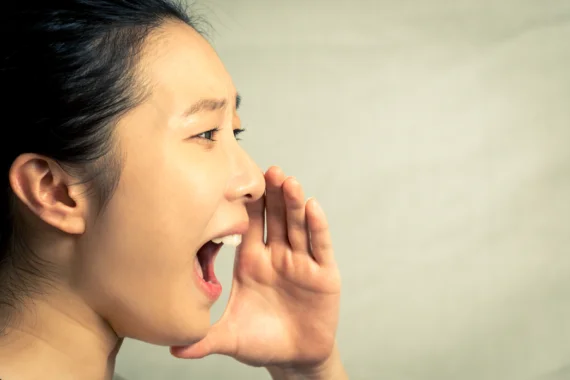15 Chinese Words That Don’t Exist in English

Of the many languages globally, Chinese stands out with its unique blend of cultural depth and linguistic complexity. This fascinating language is home to an array of words that defy direct translation into English, capturing concepts and cultural phenomena that are inherently Chinese.
For anyone delving into the world of Mandarin, understanding these untranslatable words is not just a linguistic exercise. It’s a window into the heart of Chinese culture and thought.
In this exploration, we uncover 15 Chinese words that don’t exist in English, shedding light on the intricate relationship between language, culture, and worldview. These words, which have no direct counterparts in English, offer a vivid illustration of the concepts and experiences uniquely rooted in Chinese society.
From the deeply ingrained values reflected in family and social interactions to the subtle nuances of personal character and behavior, each term reveals a facet of Chinese life that often remains hidden from the non-native speaker.
Whether you’re a language enthusiast, a cultural explorer, or simply curious, this article will guide you through the labyrinth of untranslatable words in Chinese, offering insights into a world where language shapes reality in profound and enlightening ways.
1: 裸婚 (Luǒhūn) — Naked marriage

One of the most intriguing words in Chinese that lacks an English equivalent is 裸婚 (luǒhūn), which translates literally to “naked marriage.” This term beautifully encapsulates a concept deeply rooted in contemporary Chinese society yet virtually nonexistent in Western culture.
Luǒhūn describes a scenario where a couple marries without the traditional trappings of financial stability — no house, no car, and no diamond ring. In the West, marrying for love without significant material possessions might not raise eyebrows, but in China, it’s a concept laden with social and cultural implications. This distinction highlights the stark cultural differences that give rise to such untranslatable words.
In Chinese society, where economic security and material assets are often seen as prerequisites for marriage, luǒhūn is a deviation from the norm. It’s a statement about prioritizing love and companionship over material wealth — a stance that can be admired and scrutinized within the community. This word reflects a shift in values among younger generations, who are increasingly challenging traditional norms and expectations.
Understanding luǒhūn provides a unique insight into the complex interplay between love, marriage, and economic factors in Chinese society. It’s a prime example of a word in Chinese that beautifully conveys a concept that simply doesn’t exist in the English language, offering a glimpse into the shifting dynamics of modern Chinese life.
Related Reading: The Awe of Language Learning — Master This Emotion to Reach Fluency
2: 三观 (Sānguān) — Worldview, values, and ethics

Next up in the list of words in Chinese that have no direct English equivalent, we have 三观 (sānguān). This term collectively refers to three fundamental perspectives: worldview, values, and ethics. In Chinese culture, sānguān is more than just a linguistic expression. Instead, it’s a conceptual framework that deeply influences personal relationships, life choices, and social interactions.
Unlike any singular term in English, sānguān encapsulates a comprehensive outlook on life. It’s a litmus test for compatibility in friendships, romantic relationships, and even business partnerships. When Chinese people discuss sānguān, they are referring to harmony (or lack thereof) in their most fundamental beliefs and moral compasses. It’s a concept that, while universally understood, remains one of the untranslatable words due to its broad and deeply ingrained nature in Chinese society.
The importance of sānguān in Chinese culture can be attributed to the emphasis on collective harmony and societal values. In a society where group cohesion and conformity often take precedence over individualism, aligning one’s sānguān with others is seen as crucial for maintaining social harmony. This contrasts with the Western emphasis on individuality, where personal beliefs and values may be celebrated even in the face of disagreement.
Understanding sānguān is essential for anyone looking to navigate the complexities of Chinese social dynamics. It’s a quintessential example of a word that doesn’t exist in the English language, yet its concept is pivotal in understanding how relationships and societal interactions are framed in China. The exploration of sānguān offers a fascinating glimpse into the values and ethical standards that shape Chinese society.
Related Reading: Do You Need to Learn Chinese to Visit China?
3: 沾 (Zhān) — Relationship with rice

Let’s look at 沾 (zhān), a term that vividly illustrates the deep culinary culture of China. Zhān specifically refers to the compatibility or harmony of certain foods with rice. Unlike any phrase in English, zhān captures the essence of how certain dishes complement rice, an integral part of Chinese cuisine.
Zhān isn’t just about taste. It’s about the texture and consistency of food and how it enhances the rice-eating experience. In Western culinary terms, we might think of how a sauce pairs with pasta, but zhān goes beyond this, emphasizing a balance and synergy unique to Chinese food culture. This concept is a prime example of words that don’t exist in the English language, reflecting the specific gastronomic practices and preferences inherent in Chinese dining.
Understanding zhān can enrich one’s appreciation of Chinese cuisine. For instance, a dish described as very zhān indicates that it is particularly suited to be eaten with rice — it might be saucy, flavorful, and able to blend harmoniously with the plainness of rice. This can include various dishes, from rich curries to delicate, brothy preparations.
Zhān also highlights the importance of rice in Chinese meals. In many Western diets, rice can be seen as a side dish or an afterthought, but in Chinese cuisine, it is often the centerpiece, with other dishes designed to complement it. The concept of zhān respects this centrality, focusing on how other elements of a meal enhance the rice-eating experience.
By exploring words like zhān, we delve deeper into the untranslatable words that define the unique culinary landscape of China. These terms offer more than just linguistic interest. They provide insights into the cultural practices and values integral to the Chinese way of life.
Related Reading: How to Order Chinese Food in a Chinese Restaurant
4: 撒娇 (Sājiāo) — Acting cute in a specific way

Another fascinating entry in our exploration of words in Chinese that are untranslatable into English is 撒娇 (sājiāo). This term describes a behavior typically exhibited by women, characterized by a kind of coquettishness or childlike playfulness, often used to endear themselves to their partner. Sājiāo, however, carries connotations and cultural nuances that have no direct equivalent in the English language, making it one of the more unique untranslatable words in Mandarin.
The act of sājiāo goes further than just acting cute or flirtatious. It encompasses a range of behaviors — from speaking in a childlike voice to playful pouting and feigned helplessness — intended to elicit affection or to persuade someone, often a romantic partner. While similar behaviors can be observed in other cultures, the acceptance and expectation of sājiāo are deeply rooted in Chinese relationship dynamics.
In Western contexts, such actions might be seen as disempowering or manipulative, but within the framework of Chinese culture, sājiāo is often perceived as a sign of femininity and is sometimes even expected in romantic relationships. It reflects a distinct aspect of gender norms and romantic interactions in Chinese society.
Understanding sājiāo is crucial for anyone seeking to comprehend the intricacies of Chinese social and romantic relationships. It’s a lens through which the roles and expectations of women and the dynamics between partners can be viewed. As one of the words that don’t exist in the English language, sājiāo offers a vivid example of how language can be closely tied to cultural identity and social norms.
Related Reading: Debunked: Common Myths about Learning Chinese
5: 闺蜜 (Guīmì) — Female best friend, like sisters

闺蜜 (guīmì)describes a bond between female friends that is so deep and intimate that it transcends the usual friendship and approaches the closeness of sisterhood. Guīmì stands out as one of the unique untranslatable words in Mandarin, capturing a level of emotional depth and connection in female friendships that aren’t explicitly defined in English.
Guīmì combines two characters: 闺 (Guī), which refers to the inner part of a traditional Chinese household designated for women, and 蜜 (Mì), short for 朋友 (péngyǒu), meaning friend. This combination evokes a sense of privacy, intimacy, and a shared space that is exclusively theirs. It’s a term that goes beyond the typical “best friend” label in English, embedding a sense of sisterly affection and unwavering loyalty.
In Chinese culture, where social bonds and relational networks hold significant importance, guīmì represents a relationship with the utmost level of trust, understanding, and emotional support. These friendships are often formed in youth and can last a lifetime, providing a vital support network through various life stages.
The concept of guīmì also reflects the emphasis on collectivism in Chinese society. While individual friendships are valued, there’s a strong cultural focus on being part of a community or a close-knit group. Guīmì friendships exemplify this, as they’re not just about individual connections but also about being part of a supportive community of women.
Understanding guīmì enriches our comprehension of the social fabric in China. As a word that doesn’t exist in English, it provides insight into the cherished and revered nature of deep female friendships within Chinese culture. Guīmì is more than a word. It’s a celebration of sisterhood, loyalty, and the enduring bonds that women share.
Related Reading: Your Guide to Body Parts in Chinese
6: 打脸 (Dǎliǎn) — To hit the face

Our journey through words in Chinese that defy direct translation into English brings us to 打脸 (dǎliǎn). This phrase literally translates to “to hit the face” and is a vivid example of untranslatable words that capture unique cultural nuances.
In its figurative sense, dǎliǎn is used to describe a situation where someone is proven wrong or faces embarrassment, particularly after a confident assertion or prediction.
The English language has phrases like “eating one’s words” or “having egg on one’s face,” but dǎliǎn is more specific. It implies a public and somewhat humorous acknowledgment of one’s mistake or miscalculation. This term is often used in social and professional contexts, reflecting the importance of face (面子, miànzi) and reputation in Chinese culture. Dǎliǎn can happen in scenarios where someone’s prior claim or stance is contradicted by subsequent events, leading to a metaphorical “slap in the face.”
In Chinese society, where maintaining face and avoiding public embarrassment are highly valued, dǎliǎn holds a particular resonance. It’s not just an admission of being wrong; it’s also an acknowledgment of the social dynamics at play when one’s words or actions are publicly contradicted. This concept is an example of words that don’t exist in the English language, offering a glimpse into the social etiquette and interactions unique to Chinese culture.
Related Reading: How Sacrificing Instant Gratification Helped Me Learn Chinese Faster
7 & 8: 学霸 (Xuébà) and 学渣 (Xuézhā) — Top student and poor student

Now, let’s explore a pair of terms: 学霸 (xuébà) and 学渣 (xuézhā). These words, representing the polar ends of academic achievement, are significant in the Chinese educational and cultural context. They are prime examples of untranslatable words that reveal much about societal values and expectations in China.
Xuébà, often translated as “top student” or “academic overachiever,” refers to someone who excels in their studies, consistently achieving high grades. However, this term encompasses more than just academic prowess. It conveys a sense of admiration and respect for the individual’s dedication and intelligence. In the context of Chinese culture, where educational success is highly esteemed, being labeled as a xuébà is a mark of honor and distinction.
On the other end of the spectrum is xuézhā, which could be loosely translated as “poor student” or “underachiever.” This term describes someone who struggles academically and is often seen as lacking in effort or motivation. Unlike the Western context, where various abilities and talents are generally acknowledged and celebrated, the label of xuézhā in China can carry a significant social stigma. It reflects the intense pressure and high value placed on academic success in Chinese society.
These terms, xuébà and xuézhā, highlight the importance of academic achievement in Chinese culture and the clear distinctions made between different levels of student performance. They are illustrative of words that don’t exist in English, capturing a cultural attitude towards education and achievement that is uniquely Chinese.
Related Reading: 30 Chinese Cuss Words for Any Situation
9: 土豪 (Tǔháo) — Vulgar rich

As we look further into words in Chinese that have no direct English counterparts, we come across 土豪 (tǔháo). This term, often translated as “vulgar rich” or “nouveau riche,” is an example of the unique untranslatable words in Mandarin that capture specific social phenomena in China. Tǔháo describes individuals who have recently acquired wealth but are perceived as lacking in cultural refinement or sophistication.
The term tǔháo combines 土 (Tǔ), meaning “local” or “rustic,” and 豪 (Háo), referring to “powerful” or “wealthy.” This juxtaposition highlights the contrast between newfound wealth and a perceived lack of class or elegance. It reflects a cultural perspective where the manner of acquiring and displaying wealth is as important as the wealth itself.
In Western societies, similar concepts exist, such as “new money,” but tǔháo carries a stronger connotation of tackiness or gaudiness. It’s a term that goes beyond financial status, delving into social critique and cultural judgment. Tǔháo often implies a lack of social grace, subtlety, or appreciation for traditional or high culture, which is highly valued in Chinese society.
The emergence of the term tǔháo is closely linked to China’s rapid economic growth and the ensuing wealth disparities. It’s a reflection of the societal tensions and cultural adjustments that accompany such rapid changes, highlighting the complexities of social mobility and cultural identity in modern China.
Understanding tǔháo is key to comprehending the nuances of social stratification and cultural values in contemporary Chinese society. As a word that doesn’t exist in the English language, it provides a unique lens through which to view the intersection of wealth, culture, and social perception in China.
Related Reading: The Build and Get Framework for Acquiring Mandarin Fluency
10: 颜值 (Yánzhí) — Face value

Our next step brings us to 颜值 (yánzhí). This term, literally translating to “face value,” refers to the aesthetic appeal or attractiveness of a person’s face. Yánzhí is a quintessential example of untranslatable words in Mandarin, encapsulating the significant emphasis placed on physical appearance in Chinese culture.
While the concept of judging someone based on their looks is universal, yánzhí goes beyond mere physical attractiveness. It encompasses a cultural value system where facial features and expressions are often linked to personal success and social opportunities.
In the West, similar concepts like “beauty” or “good looks” are used, but yánzhí is more specific to the context of how attractiveness can directly influence one’s perceived value in society.
In modern China, yánzhí is frequently used in popular media and social conversations, particularly among younger generations. It’s often discussed in the context of celebrities, social media influencers, and even in everyday situations, reflecting the growing importance of visual appeal in the digital age.
The prevalence of yánzhí in contemporary Chinese discourse also sheds light on the societal pressures to conform to certain beauty standards. It underscores how physical appearance can impact perceptions in various aspects of life, from personal relationships to professional opportunities.
Related Reading: The Tourist Guide to Chinese Money
11: 膨胀 (Péngzhàng) — Inflation or arrogance

Continuing our exploration of untranslatable words in Chinese, we come to 膨胀 (péngzhàng). Commonly understood as “inflation” in economic terms, péngzhàng also carries a unique connotation in social contexts, akin to ‘arrogance’ or “swelling up with pride.” This dual meaning makes péngzhàng a fascinating example of untranslatable words in Mandarin, reflecting the language’s ability to convey complex ideas succinctly.
In its social usage, péngzhàng describes a person who has become conceited or overly self-confident, often due to recent success or newfound status. This usage captures more than just arrogance; it implies a sense of overstepping or expansion beyond one’s appropriate bounds. In English, while words like “egotistical” or “pompous” might come close, they lack the specificity of péngzhàng’s implication of “swelling” or “expansion” of ego.
The term’s economic and social meanings are intertwined in the Chinese cultural context. Just as inflation describes the expansion of prices, péngzhàng, when used to describe a person, metaphorically refers to the “inflation” of one’s ego or self-perception. This reflects the value placed on humility and modesty in Chinese society, where maintaining a balanced sense of self is considered virtuous.
In modern Chinese discourse, péngzhàng is often used to critique behavior perceived as overly arrogant or self-important, particularly in a society that values collective harmony over individual grandstanding. The term serves as a social check against excessive pride and a reminder of the cultural importance of humility.
Related Reading: Does Reading Help You Speak Chinese?
12: 后怕 (Hòupà) — Fear after the fact

Next up, we come across 后怕 (hòupà). This term, translating to “fear after the fact,” represents a unique emotional state, making it a notable entry among untranslatable words in Mandarin. Hòupà describes the retrospective fear or anxiety experienced after a potentially dangerous or unsettling event has passed.
While English has phrases like “a close call” or “in hindsight,” hòupà is more specific. It captures the lingering emotional response, the realization of what could have happened, and the subsequent relief mixed with apprehension. This term is often used in scenarios where the full extent of a risk or danger becomes apparent only after the situation has been safely resolved.
Hòupà is particularly poignant in its ability to encapsulate a common human experience rarely given a specific name in other languages. It reflects the emotional processing of events that, upon reflection, were more perilous than initially perceived. This can range from narrowly avoiding a traffic accident to realizing the potential consequences of a risky decision after the fact.
The concept of hòupà highlights the human tendency to retrospectively analyze and emotionally react to past events. It underscores the importance of reflection and learning from experiences, a concept deeply embedded in Chinese culture. Hòupà also speaks to the value of caution and awareness, reminding individuals to be mindful of potential dangers even if they are not immediately apparent.
Understanding hòupà enriches our appreciation of the nuanced ways the Chinese language and culture articulate complex emotional states. As a word that doesn’t exist in the English language, it offers a unique lens into the human experience of processing fear and relief in retrospect.
Related Reading: How to Say “Nice To Meet You” in Chinese: 10 Phrases
13: 暖男 (Nuǎnnán) — Warmhearted man

Let’s discuss the concept of 暖男 (nuǎnnán) next. This term, translating to “warmhearted man,” is a fascinating addition to our list of untranslatable words. Nuǎnnán describes a man who is kind, considerate, and emotionally supportive, particularly in his relationships with women, including not just romantic partners but also family members and friends.
The concept of nuǎnnán goes beyond the simple English descriptors of “nice” or “gentle.” It conveys a deeper sense of empathy, emotional intelligence, and an inherent warmth in character. In Chinese culture, where traditional male roles have often emphasized strength and stoicism, the rise of the nuǎnnán ideal marks a shift towards valuing emotional expression and sensitivity in men.
Nuǎnnán represents a modern archetype in Chinese society, reflecting changing attitudes towards gender roles and interpersonal relationships. This term captures the appreciation for men who break away from the conventional mold of masculinity, showing care, understanding, and emotional availability.
In media and popular culture, nuǎnnán has become a popular term to describe male characters or celebrities who embody these traits. It’s used to highlight a desirable balance of strength and gentleness, combining traditional virtues with a modern, empathetic approach to relationships.
Understanding nuǎnnán is crucial for gaining insight into evolving social norms and expectations in contemporary Chinese society. As a word that doesn’t exist in the English language, it provides a unique perspective on the changing perceptions of masculinity and the value placed on emotional warmth and kindness in China.
Related Reading: How to Say Sorry in Chinese: Best Ways to Apologize Correctly
14: 直男 (Zhínán) — Heterosexual male with specific connotations

A word that confuses a lot of Chinese language learners is 直男 (zhínán). This term, literally translating to “straight man,” carries specific cultural connotations in the Chinese context, making it a notable addition to our list of untranslatable words. Zhínán refers not just to a heterosexual male but to a type of masculinity characterized by straightforwardness, lack of emotional expressiveness, and often traditional views on gender roles.
In English, while “straight man” simply denotes heterosexual orientation, zhínán delves deeper into personality traits and societal expectations. It often implies a certain bluntness, practicality, and a traditional, sometimes inflexible, approach to relationships and gender dynamics. This term can carry positive connotations, such as being reliable and uncomplicated, and negative ones, like being insensitive or unromantic.
Zhínán reflects the nuances of contemporary Chinese society’s views on masculinity. In contrast to Nuǎnnán, which celebrates emotional sensitivity, zhínán often highlights a more traditional, stoic form of masculinity. This distinction is symbolic of the ongoing cultural conversation in China about male identity and gender roles.
The concept of zhínán is particularly relevant in discussions about romantic relationships and social interactions. It provides insight into expectations and stereotypes that men face in Chinese culture and how these are evolving with changing societal norms.
Related Reading: Can You Learn Chinese in 5 Minutes?
15: 打鸡血 (Dǎ jī xiě) — Injected with chicken blood

In our look at words in Chinese with no direct English equivalents, 打鸡血 (dǎ jī xiě) stands out as an intriguing example. This phrase, translating literally to “injected with chicken blood,” is one of the unique untranslatable words in Mandarin, capturing a specific state of heightened enthusiasm or excitement. It’s a vivid expression used to describe someone unusually energetic or overly zealous, often in a specific context or undertaking.
The origin of this idiom comes from a traditional belief that injecting chicken blood could invigorate and energize a person. While not taken literally in modern times, the phrase has evolved into a metaphorical expression. In English, we might say someone is “pumped up” or “hyper,” but dǎ jī xiě conveys a more intense and sometimes frenetic energy level.
In contemporary Chinese culture, this term is often used to describe a sudden surge in motivation or passion, especially in scenarios like work, creative projects, or during a particularly spirited debate. It reflects not just the energy itself but also the infectious enthusiasm that can inspire others.
Dǎ jī xiě is an insightful example of how cultural practices and beliefs can shape language. It embodies a concept that, while somewhat eccentric in its literal interpretation, has become a colorful part of everyday Chinese vernacular. This phrase offers a glimpse into the dynamic ways in which the Chinese language encapsulates unique cultural phenomena.
Related Reading: Best Resources for Learning Chinese
Embracing the untranslatable, understanding the unique
Our journey through the 15 Chinese words that don’t exist in English offers a fascinating window into the rich world of Chinese language and culture. Each word we’ve explored is a testament to the uniqueness of Mandarin, revealing aspects of Chinese society, values, and worldview that often remain hidden in translation.
These untranslatable words remind us that language isn’t just a tool for communication but also a reflection of culture, history, and collective identity.
Understanding these unique words is more than a linguistic curiosity; it’s a step toward cultural empathy and global connectedness. As we embrace these nuances of Mandarin, we open ourselves up to a deeper, more nuanced understanding of the Chinese way of life and thought.
But why stop at understanding? If you’re intrigued by the depth and beauty of the Chinese language, and you’re eager to dive deeper into its intricacies, we have just the opportunity for you.
Imagine recognizing these untranslatable words and using them in conversation, connecting with Chinese culture on a whole new level. With our FREE Mandarin Fluency Scorecard, you’re one step closer to achieving this goal.
Our scorecard is designed to comprehensively assess your current Chinese skills. By completing it, you’ll gain insight into your strengths and weaknesses and the barriers you must overcome to achieve fluency. But that’s not all — you’ll receive a customized guide tailored to your current level, offering immediate action steps and strategies to enhance your learning journey.
It’s quick, easy, and absolutely free. It takes under 60 seconds to embark on a journey tailored just for you. Discover your path to fluency, understand your unique learning needs, and take the next step in your Mandarin learning adventure.<Yes! Take the Scorecard!>








